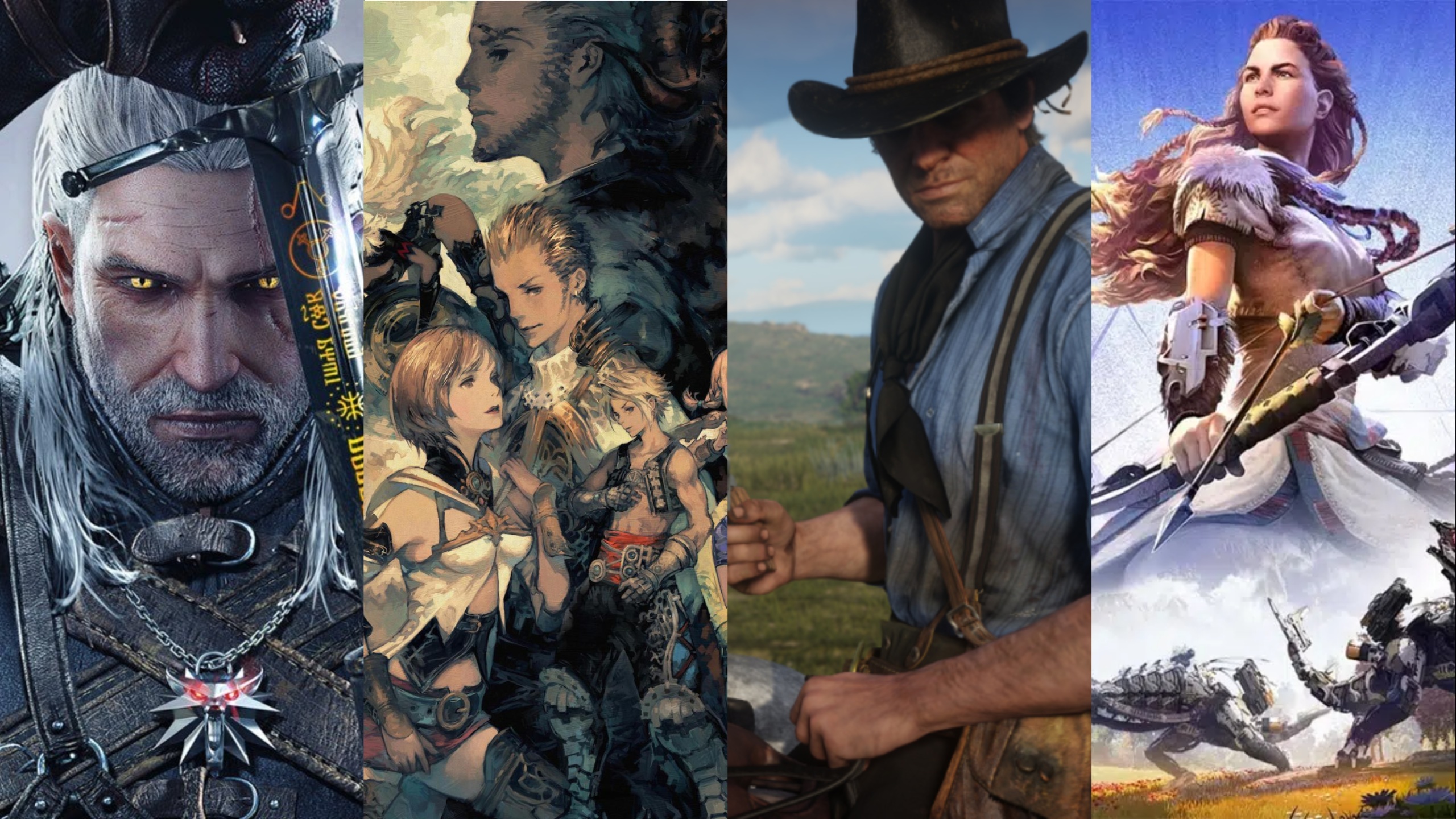Of the many reasons we play video games, the idea of playing one to experience its story is still probably the strangest motivation for those still largely unfamiliar with the medium. Obviously, the idea that games don’t (or can’t) tell compelling stories is an antiquated notion that is slowly fading from the public consciousness. Yet, you sometimes get the feeling that more people are coming around to the idea that video game stories can be great rather than the realization that there are countless video game stories that are already definitively great.
If you are reading this, there is a good chance you don’t need to be told that great video game stories have existed for nearly as long as video games themselves. Yet, there are times when it feels necessary to stop and really appreciate what diverse, essential, and, more often than not, unique stories gaming has granted us over the years
That’s what this list really is. We assigned a panel of Den of Geek contributors the impossible task of voting on the best video game stories ever not as a way to say that there are only 35 great ones but to celebrate the fact that even the best of the best only tell such a small part of the story.

35. Psychonauts 2
The original Psychonauts was a fantastic little summer camp romp full of memorable characters and levels. And honestly, fans would have been perfectly happy if the sequel had trodden similar ground.
There’s plenty in Psychonauts 2 for fans of the original (including even better illustrations of various mental health conditions), but Psychonauts 2 also features a surprisingly heartfelt story about the power of family. Yes, there’s plenty of Double Fine’s trademark ridiculousness and exaggerated art style, but in the end, Psychonauts 2 manages to tell a more emotional story than many grounded games that trade in similar themes. – Chris Freiberg
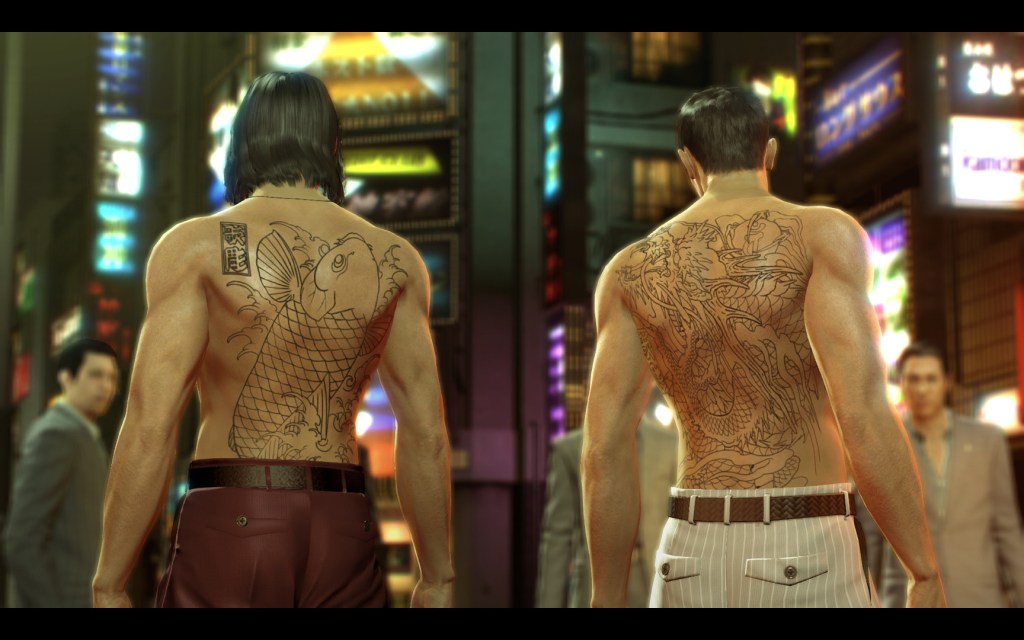
34. Yakuza 0
The Yakuza series premiered on the PlayStation 2 in 2005 and introduced players to characters such as Kazuma Kiryu, Goro Majima, and many more. However, it implied history that fans never got to see until 2015. The wait was worth it.
Yakuza 0 gives players a look at the early days of series mainstays Kiryu and Majima and how they became the yakuza legends in earlier entries. Their stories play out like a Godfather-esque crime drama, full of backstabbing and codes of honor. but spiced with action sequences that wouldn’t be out of place in an anime. Moreover, Yakuza 0’s world is full of side stories that inject a good amount of levity to balance out the drama.
Yakuza 0’s pacing doesn’t quite match its action, but when the story gets going, you’re going to want to see more. – Aaron Greenbaum

33. Dead Space
Dead Space, with its oodles of classic sci-fi references, takes place after a Lovecraftian variation on the events of 2001: A Space Odyssey has already begun to reshape humanity into something terrible.
The game excels in positioning us close to protagonist Isaac Clarke, looking over his shoulder like a worried angel, watching as his life is torn apart by horrors birthed from the darkness of an unknown universe. An immersive heads-up display deepens our connection to Clarke as he faces a gauntlet of terrors and tragedies that gradually crack his sanity. Full of tantalizing, legitimately scary lore, Dead Space is as classic a horror story for the video game set as Alien was for movie buffs.– Margaret David
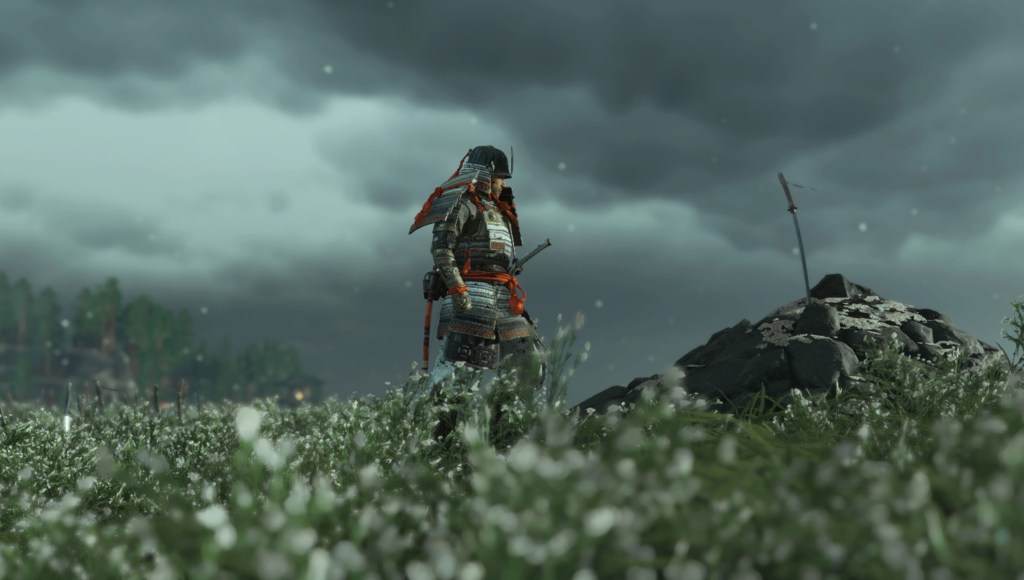
32. Ghost of Tsushima
In many modern open-world games, the narrative is little more than a means to an end. The story is primarily there to provide an incentive for the player to explore the game world. But in Ghost of Tsushima, the story of Jin Sakai is inextricably enmeshed with the titular, war-torn island. He worships the soil he’s forced to spill blood on, and this synergy between story and gameplay is what makes the game feel so artful and cohesive.
Jin’s journey poses some deep psychological questions about honor and loyalty in a way that’s more sophisticated and philosophical than what we’re used to seeing in such games. The folks at Sucker Punch clearly poured their hearts and souls into this soulful samurai epic. – Bernard Boo
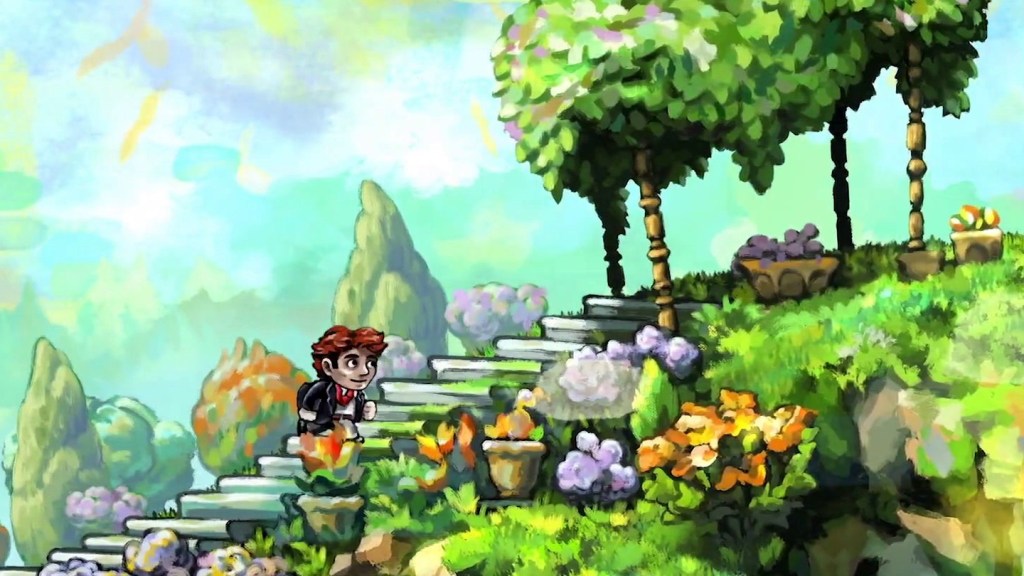
31. Braid
Braid is the story of a boy and a girl. A princess goes missing and a boy must rescue her. Taken on its own, that’s not necessarily a great narrative. There’s a reason that Super Mario Bros. isn’t on this list.
Of course, those who played Braid know that the boy is actually something of a monster who has fashioned himself into the hero of his own narrative. Or maybe the whole thing is really an elaborate metaphor for the story of Oppenheimer and the creation of the atomic bomb. However you view it, Braid is a masterclass in subversion. Maybe it’s challenging the tired tropes of an entire medium, or maybe it is simply forcing us to confront the biases that participating in a narrative naturally forms. At the very least, Braid helped prove that truly great gaming narratives weren’t limited to big-budget cinematic experiences and traditional epics. – Matthew Byrd

30. Firewatch
As the story of a fire lookout forced to wander the woods early into his new job, the power of Firewatch is found in its purity and focus. Henry and Delilah’s walkie-talkie banter is some of the best-written video game dialogue ever, and the mystery they unravel together is made all the more compelling by their emotional, long-distance connection.
What makes the story so rich is that the longing to see these two meet in person is palpable throughout, with the inherent isolation of their jobs as fire lookouts becoming more oppressive as the story progresses. The conversations with Delilah become so enthralling that, at the point in the game where you lose contact for an extended period of time, the radio silence is almost unbearable. – BB
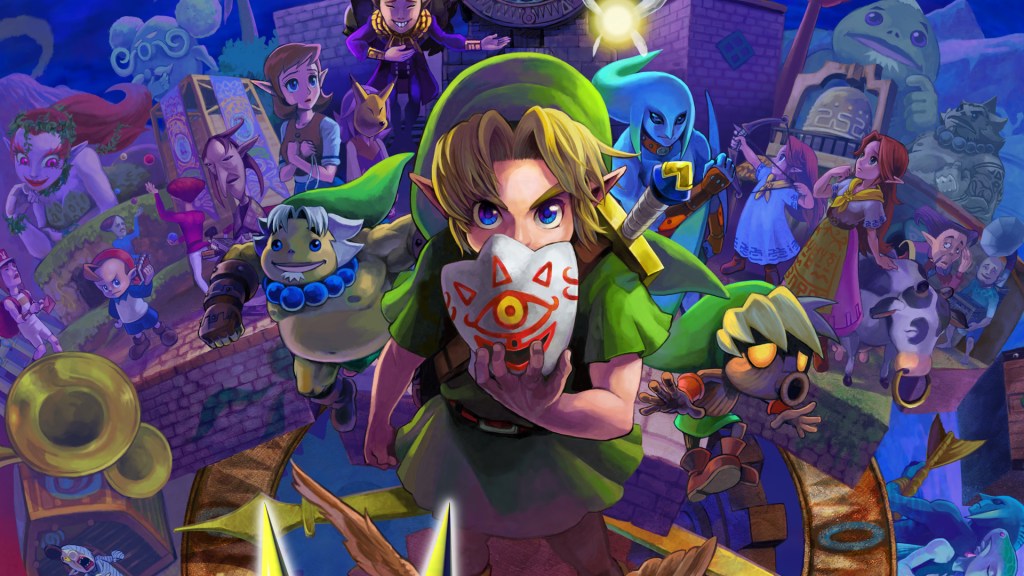
29. The Legend of Zelda: Majora’s Mask
As great as the Legend of Zelda series is, its stories too often boil down to “Link saves Hyrule from Ganon.” But the complete absence of Hyrule and Link’s archnemesis is exactly why Majora’s Mask has left such a lasting impression.
From the opening moments, Majora’s Mask just so perfectly creates feelings of dread and impending doom. A grinning moon hangs above as a constant reminder that the world will end in 72 hours no matter what Link does. At least until he goes back in time to reset the timeline. While it’s become more popular for games to embrace time loops and doomsday scenarios like this, Majora’s Mask was among the very first to do so, and arguably still the best. – CF
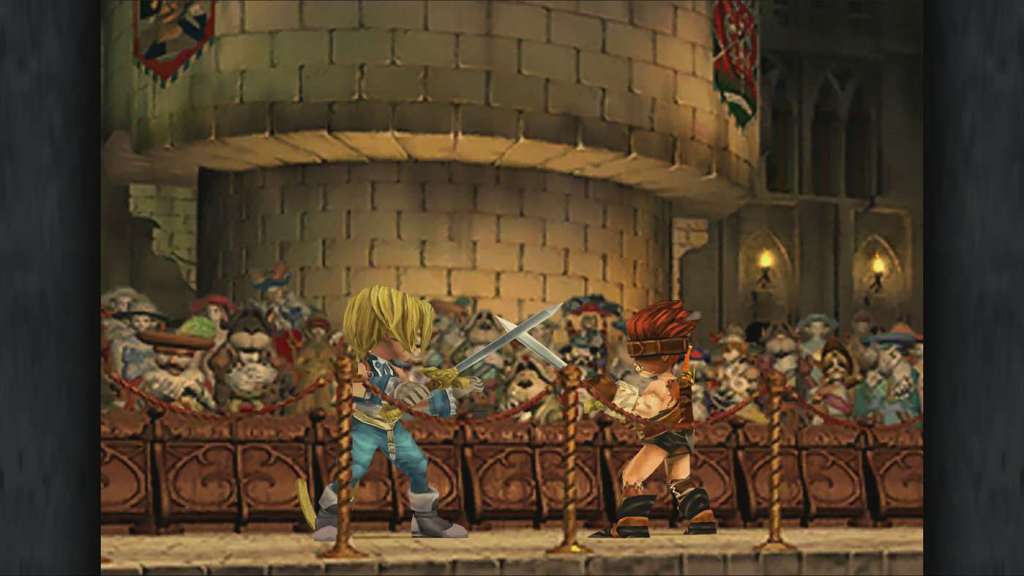
28. Final Fantasy 9
While Final Fantasy 7 catapulted the series into the mainstream, it started a trend that saw Final Fantasy games pivot away from the fantasy genre. Final Fantasy 9 was envisioned as a return to form for the series that didn’t lose all the lessons Square had learned in storytelling through recent entries.
In Final Fantasy tradition, Final Fantasy 9 stars a host of characters from different backgrounds, and much of the story revolves around them. Almost every character is relatable in one form or another, and players get to see them grow and develop, not just through the main story but also through optional cutscenes that add to their layers. Arguably the best characters in Final Fantasy 9 are Zidane, Steiner, Garnet, and Vivi, not just because of their personalities but because their backstories play key, and unique, parts in the main narrative.
Final Fantasy 9 demonstrates that sometimes the only story a game needs is the story of the characters who lead it. – AG
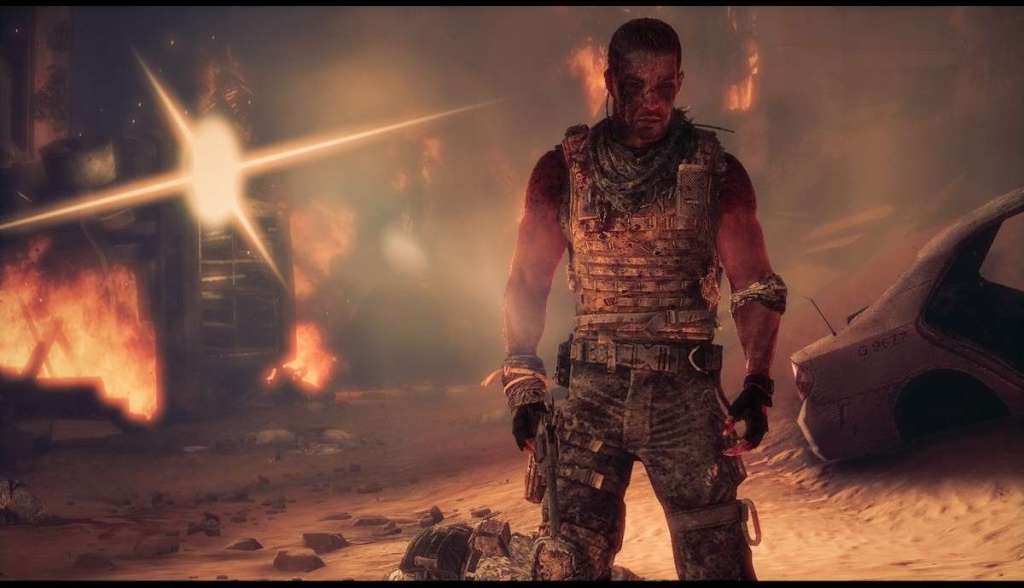
27. Spec Ops: The Line
Many playable characters in military-themed video games are portrayed as heroes, but Spec Ops: The Line asks “What would happen if the protagonist was just as bad as the villain?” Is the player just as guilty for taking their side?
In Spec Ops: The Line, players control Captain Martin Walker in a version of Dubai that is being obliterated by sandstorms. What begins as an extraction mission to retrieve the AWOL Colonel John Konrad devolves into a fight for survival as loyalties are tested and sanities are questioned. The narrative itself is a powerful deconstruction of war, and the gameplay accentuates that with its intentionally military shooter stylings. Whether Spec Ops: The Line lets players decide who to kill or forces gamers’ hands, every decision feels like the wrong one. This style of storytelling reaches a peak during the game’s infamous white phosphorus scene.
It’s one thing to tell a great story, but it’s quite another accomplishment to use seemingly boilerplate action gameplay design as the basis for a medium challenging exploration of morality. – AG
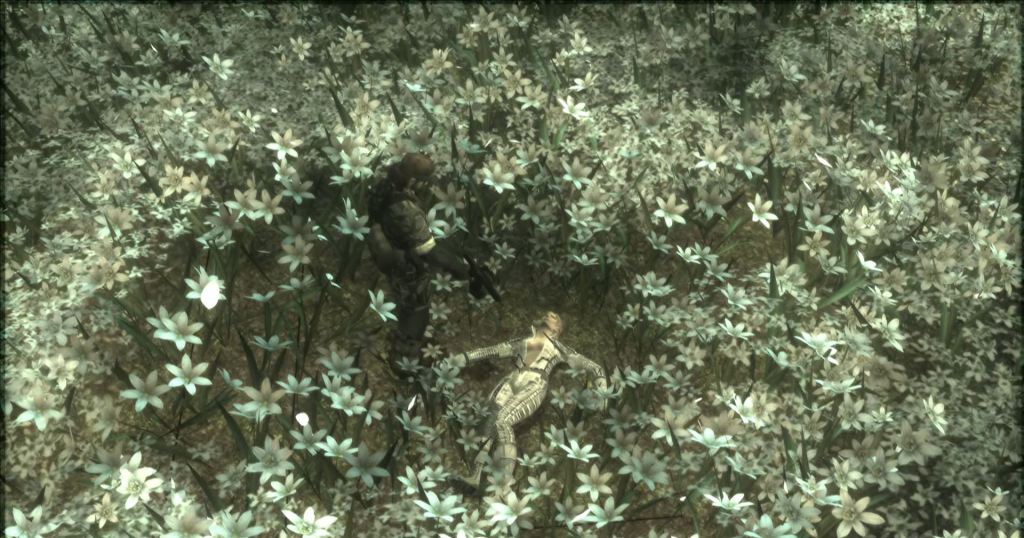
26. Metal Gear Solid 3
Metal Gear Solid 3 is sometimes described as one of the more straightforward MGS stories and…well, I suppose that’s true. At the very least, it’s not the meta-storytelling-fuelled social commentary head-trip that MGS 2 was, and it doesn’t quite rival MGS 4 when it comes to cutscenes that are the length of a short film.
Yet, there is so much heart to this story. All the classic Kojima creativity (and, let’s face it, weirdness) is present and accounted for, but this is also an almost Apocalypse Now-like narrative about soldiers weighing duty against the humanity they so often need to sacrifice to carry out that duty. It also tells a genuinely fascinating conspiracy thriller narrative that doubles as one of the most important pieces of one of gaming’s most complicated mythologies. – MB
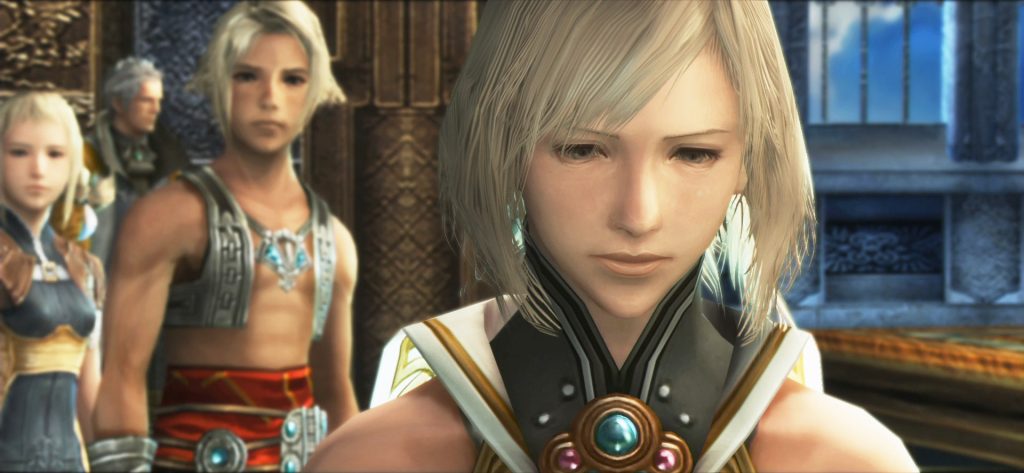
25. Final Fantasy 12
Final Fantasy 12‘s Ivalice is as diverse, beautiful, and troubled by politics as Westeros. It’s a time of high magic when a murderous power struggle turns the Dalmascan princess Ashe into a vengeful rebel, though the kingdom’s commoners, like Vaan, mostly see the same hungry streets as before.
It’s a twist of fate that makes these worlds converge, and it’s one that gradually reveals a story about the power of free will, with its ability to make hateful immortals resort to controlling beings they consider lesser. It’s a complicated story to summarize, but fine pacing and one of the best localizations the franchise has ever enjoyed ensures it all makes sense by the time the final boss music starts. – MD
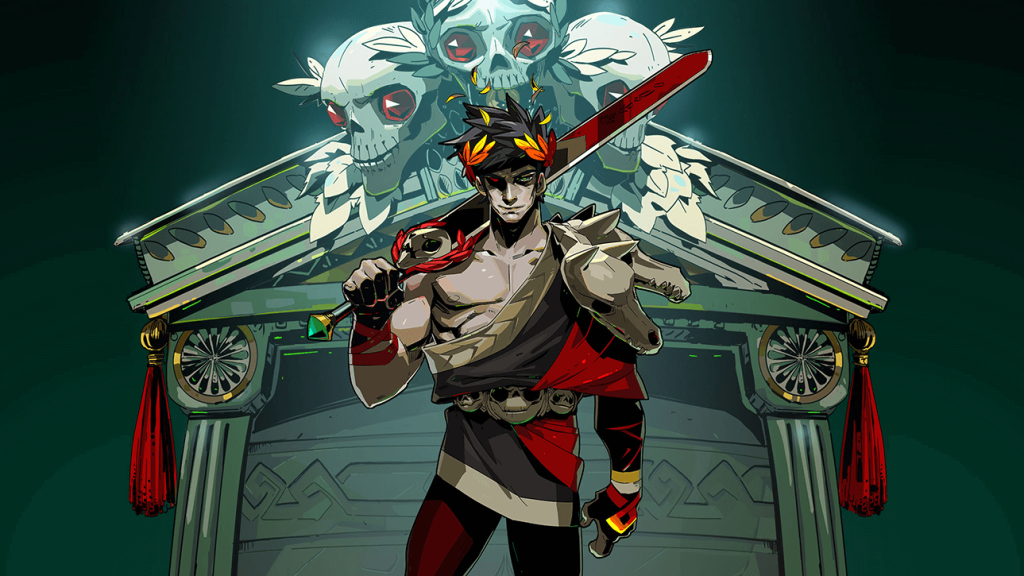
24. Hades
Roguelikes, with their procedural nature and chaotic playstyle, usually aren’t the best vehicles for complicated, richly emotional stories. Supergiant Games said “bet” while developing Hades, which uses its often murderously short playthroughs to weave a story about family and all the secrets and pain relatives can hide from each other.
It draws, naturally, from Greek mythology, but with an empathetic understanding and a delve into near-forgotten lore. It’s also beautiful to behold, even when we’ve gotten our hero killed yet again. The story is doled out so efficiently that we become as eager as Zagreus to throw ourselves back into the fray, all to learn more about another fraught family tie and the noble futility of a Sisyphean task – MD

23. Final Fantasy 6
In the ‘90s, RPGs still largely followed a traditional formula where a party of heroes gathered together to save the world. Final Fantasy VI largely begins that way (albeit with some fantastic set pieces and world-building along the way). But just when you think you’re in for another by-the-numbers (if incredibly well done) adventure, something very unexpected happens; the bad guy wins. And he wins big, essentially triggering the end of the world. He has his reasons, mind you, but he largely did it because he realized he can.
The rest of the game is then spent exploring the ruins of that world, again gathering your forces, and this time, preparing for the true epic final showdown. Above all, Final Fantasy VI is a game about hope in the face of insurmountable odds, and its famous twist illustrates that points so well that it remains, arguably, the very best story in the series. – CF
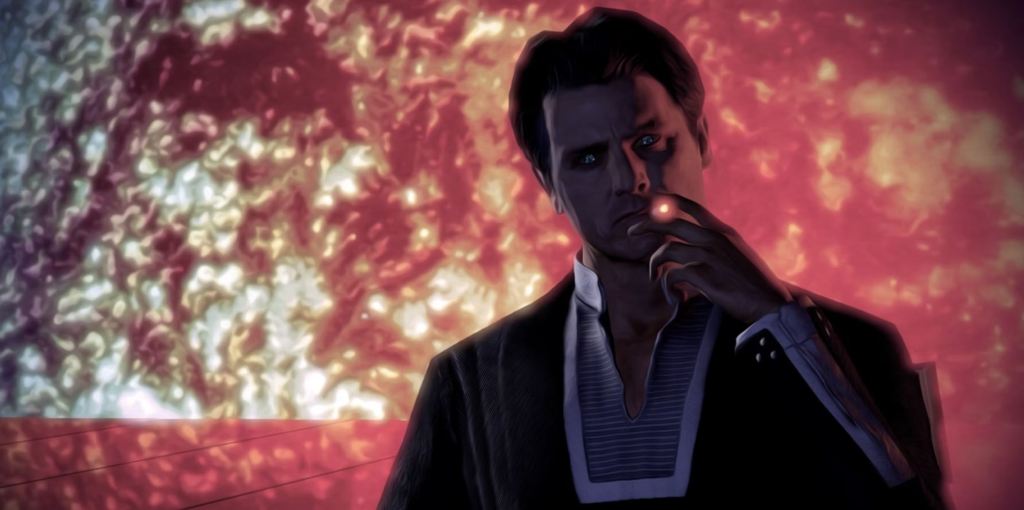
22. Mass Effect 2
RPG stories are only ever as good as the cast of characters that drive them, and the party of misfits you assemble in Mass Effect 2 is one of the greatest in gaming history.
Each party member has a compelling backstory and introduces a unique dynamic to the group. Yes, the overarching sci-fi narrative is great on its own, but it’s the party members’ individual stories, which play out in the game’s uniformly fantastic “loyalty missions,” that make this game so unforgettable and endlessly replayable. Each character’s arc (from Jacob’s shocking reunion with his father to Grunt’s rite of passage into the Urdnot clan, to the heart-wrenching trial of Tali) is incredibly compelling and drags you deeper and deeper into the game’s worlds to the point of obsession. – BB
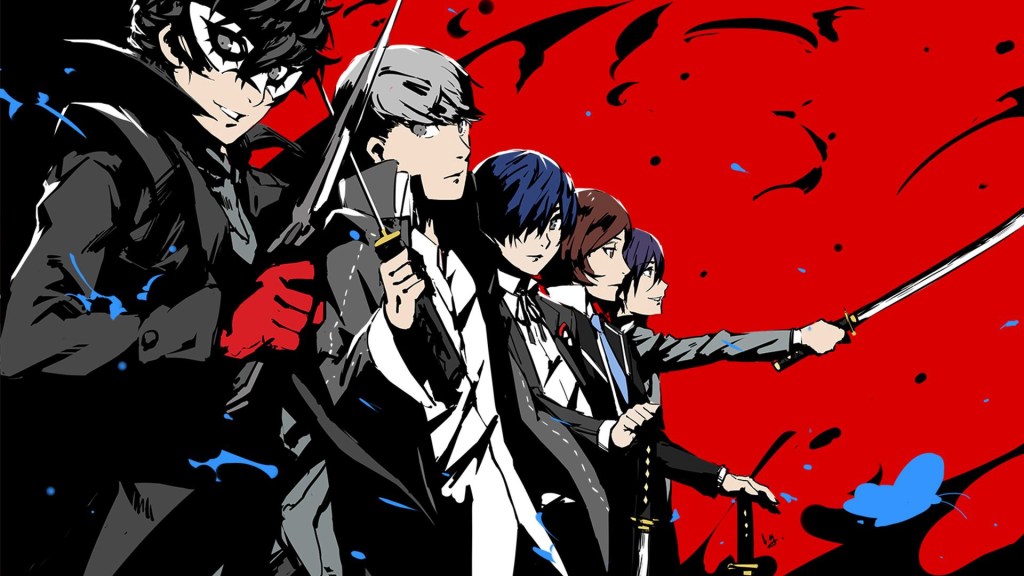
21. Persona 5
A handful of rheumy JRPG tropes cause Persona 5 to occasionally stumble over its earnest themes, but it never detracts from the result. Our hero, codenamed Joker, becomes ensnared in a supernatural fight to free the chained hearts of Tokyo from the restrictive social norms that allow the powerful, ensconced in their metaphorical palaces, to prey on them.
Persona games always have something big to say, and this one understands that individuality is the key to Japan’s future. With a slate of personae that includes more trickster archetypes than normal, including Arsene Lupin himself, Persona 5’s passionate storytelling makes us forget that we’ve yet again fallen in love with a plucky crew of high school kids. – MD
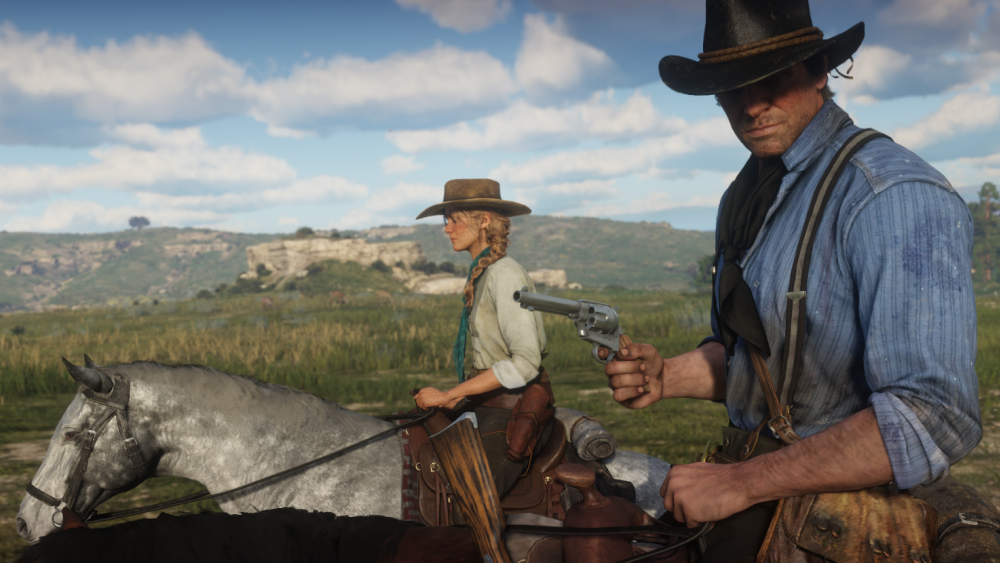
20. Red Dead Redemption 2
If Red Dead Redemption was The Good, The Bad, and The Ugly, Rio Bravo, and High Noon then Red Dead Redemption 2 is McCabe and Mrs. Miller, Deadwood, and Blood Meridian. It is a slow and methodical examination and deconstruction of the Western genre that seems equally fascinated and horrified by what that era represents and the stories we tell in it.
Yes, Arthur Morgan’s story leads into the events of Red Dead Redemption, but it’s tough to think of this game as “just” a prequel. It’s the story of desperation and the men (and country) that desperation forged. We have a feeling that we join the Van der Linde gang in their final days, but nothing can prepare us for their agonizing falls, the stories they make along the way, or how we come to care for the damned and the doomed as if they were anything but. – MB
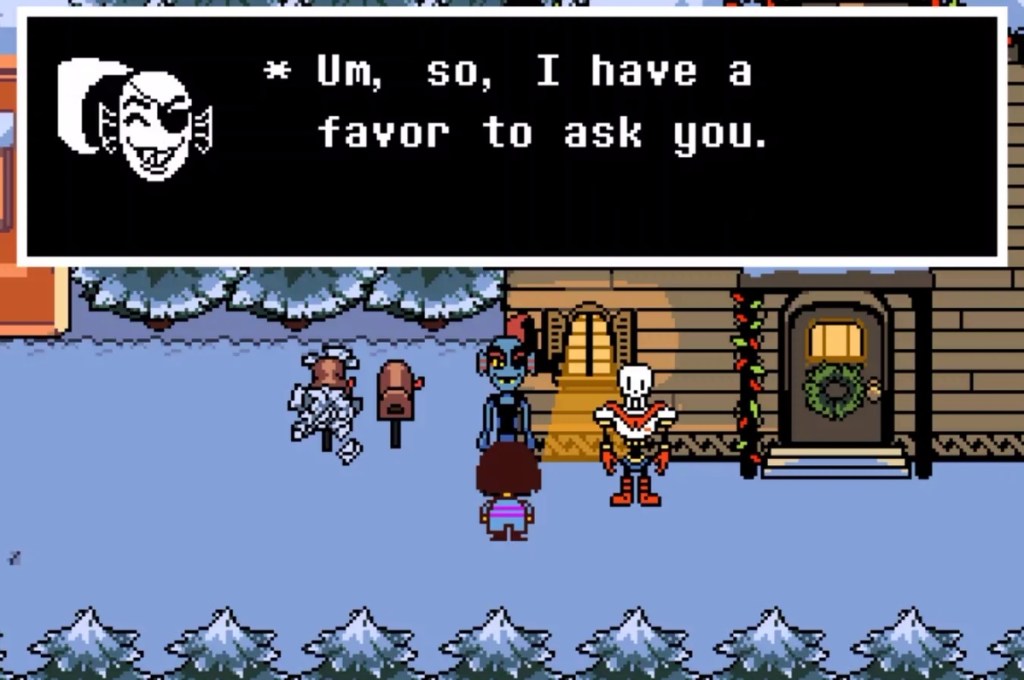
19. Undertale
It’s difficult to talk about Undertale’s story with absolute authority. That’s obviously partially due to the game’s complex themes and rather large narrative, but it’s really about how so much of Undertale‘s story plays out in the way you experience it. This is a game that constantly sets up new expectations only to immediately shatter them. A Wikipedia summary doesn’t do it justice, and the way you choose to play the game will affect your perception of it.
What I can tell you with absolute authority is that Undertale is funny. That may sound like a strange thing to highlight in the context of the greatest gaming stories, but we don’t get a lot of genuinely funny games. Besides, few (if any) other games use humor to make us care for a game’s world, characters, and journey quite the way that Undertale does. The love this game’s adamant fans have for it is second to the love that went into making it. – MB
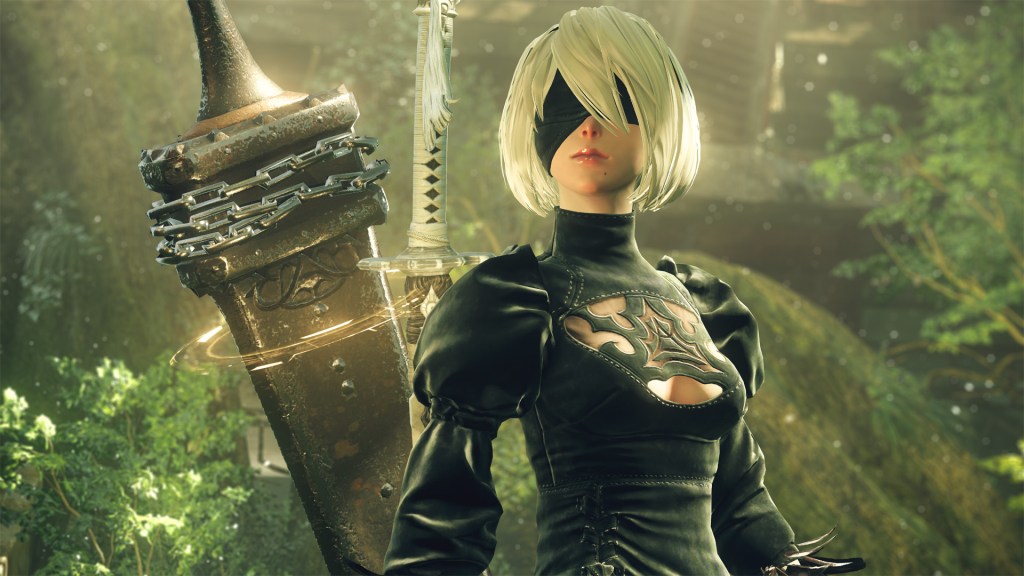
18. NieR Automata
Usually, hack-and-slash games focus on the hacking and slashing and tie events together with a barebones story that only exists to explain why the protagonist hacks and slashes. NieR Automata challenges that design.
NieR Automata begins with players controlling 2B: a combat android who exists to protect humanity from invading alien robots. The narrative is relatively simple at the start but quickly expands with themes such as identity, purpose, and camaraderie. Even when NieR Automata ends, the story isn’t over. In a twist few could say they ever saw coming, the New Game + mode offers a new perspective on previous events. Even after players are finished, New Game + offers a second New Game + mode, which adds even more context and story content, wrapping everything up in a satisfying, if humbling, finale.
Whether you love heavy pathos, lengthy campaigns, or stylish action, NieR Automata delivers a must-play experience. – AG
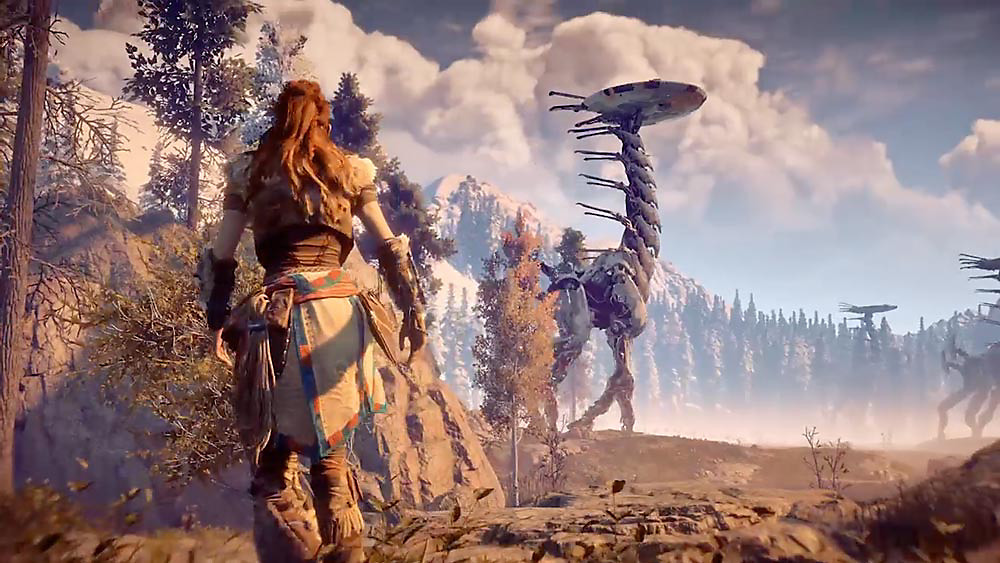
17. Horizon Zero Dawn
With a fresh post-apocalyptic setting that mixes primitive humanity with visually stunning animalistic machines, it’s easy to get lured into Aloy’s journey just by how cool the game is to play.
But Horizon isn’t afraid to introduce kindness and tragedy in equal measures early on. By mid-game, we’re invested in finding scraps of lore to tell us how humanity once lived and died at the hands of robots once meant to help us thrive. Framed by symbolic scraps of Egyptian mythology, Aloy’s mission to understand her predecessor, and to end the continuing horrors a bastard named Ted Faro set into motion, turns her into a protagonist we’re always happy to see more of. – MD
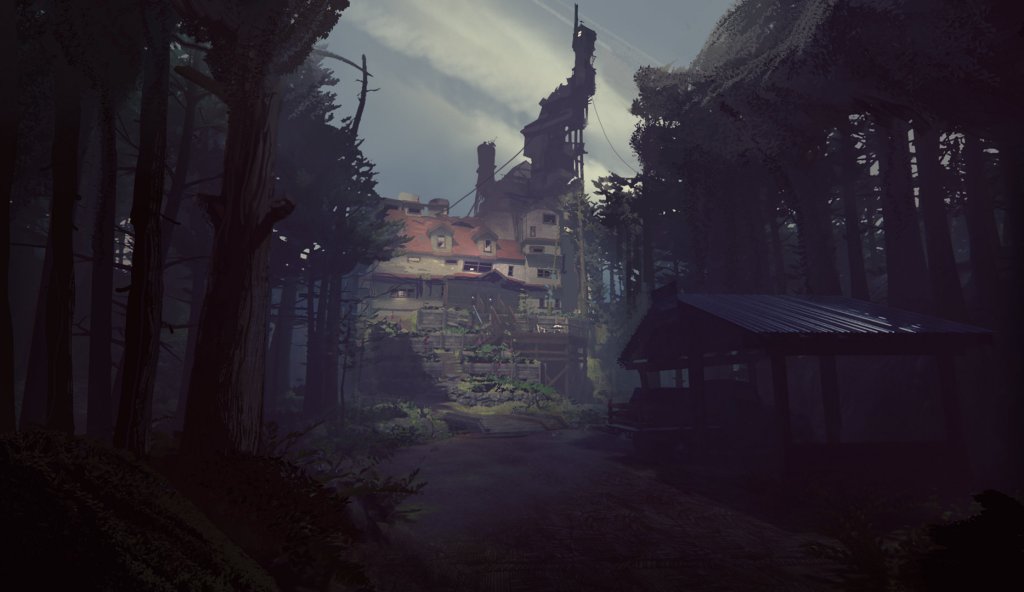
16. What Remains of Edith Finch
A mysterious figure travels to a remote home in Washington to better understand the journal of a woman named Edith Finch. It seems that Edith belongs to a “cursed” family plagued by mysterious deaths. The stories of those deaths play out in highly stylized sequences that reflect the departed’s personality. The most memorable of those sequences sees a cannery worker’s increasingly elaborate daydreams lead to a brutal, yet necessarily realistic, depiction of suicide.
Edith Finch is about the past, the future, and the often painful reconciliation that must be made between those concepts. Its offers horrors in the style of something like Hereditary, but you don’t have to look hard to find the strange beauty in its methods. We often look to the past to better understand ourselves and where we’re going, yet we so easily misremember and romanticize even the darkest moments in our lives. No other game grapples with that sensation quite like Edith Finch – MB
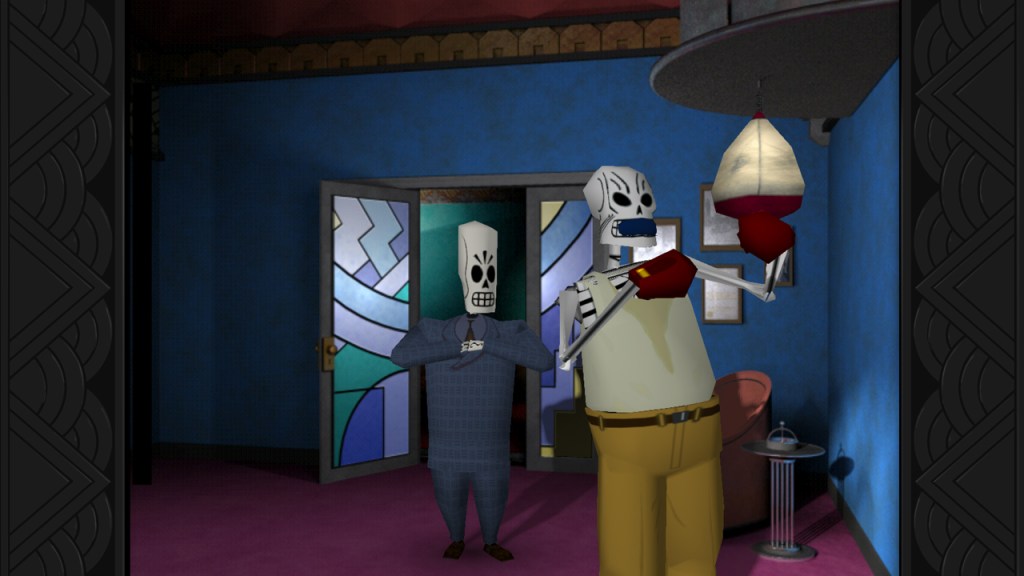
15. Grim Fandango
Tim Schaefer’s concept for Grim Fandango was a stroke of genius. This Maltese Falcon-style noir set in the Aztec vision of the afterlife is brimming with charismatic characters who transcend the genre archetypes they’re slotted into thanks to sharp, witty writing and voice acting, and iconic character designs that look great to this day.
Manny Calavera and lovable lug Glottis’ four-year odyssey to save the pure-hearted Meche is full of deceit and deception, just like any other good noir. But it’s the game’s hilarious material, four-act structure, and imaginative riffs on noir and Day of the Dead imagery that set it apart as one of the most original and beloved adventure game stories ever. – BB
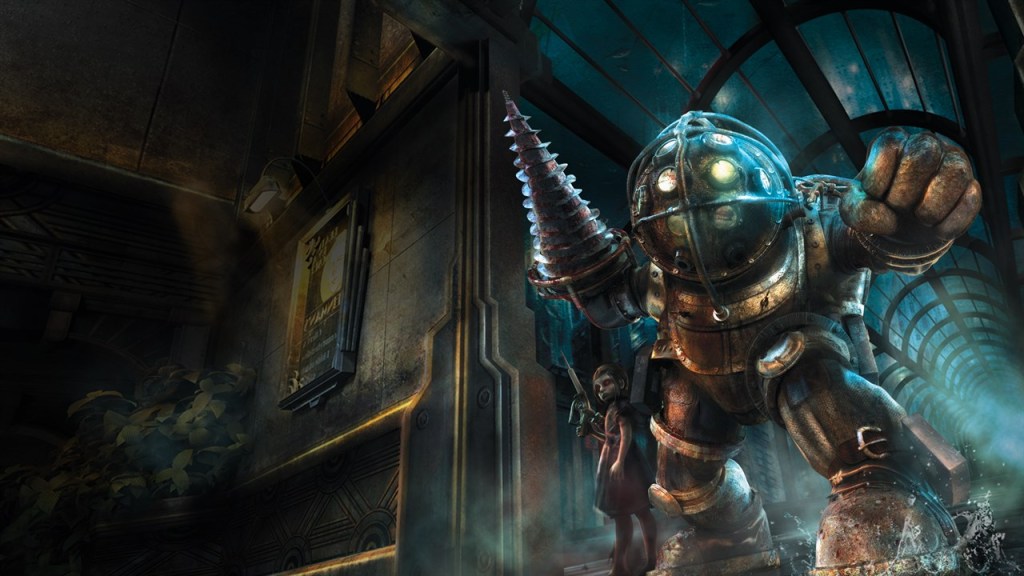
14. BioShock
Bioshock deserves a lot of credit for its fantastically well-crafted world that will really make you think long and hard about selfishness and the folly of utopianism. But what most people remember about the game are the three words: “Would you kindly?”
That one simple phrase puts Bioshock among the greatest gaming stories of all time. The great thing about it is that it’s dropped so sparingly and so casually at first, that you don’t even think much about it. It’s just a slightly old-fashioned phrase that fits in well with the game’s ‘60s style. But when you finally confront the game’s main antagonist Andrew Ryan and find out that it wasn’t harmless world-building, but actually a hypnotic trigger that controlled your actions for most of the game. It’s that perfect mind-bending twist that is genuinely shocking in the moment and recontextualizes an already incredible adventure. – CF
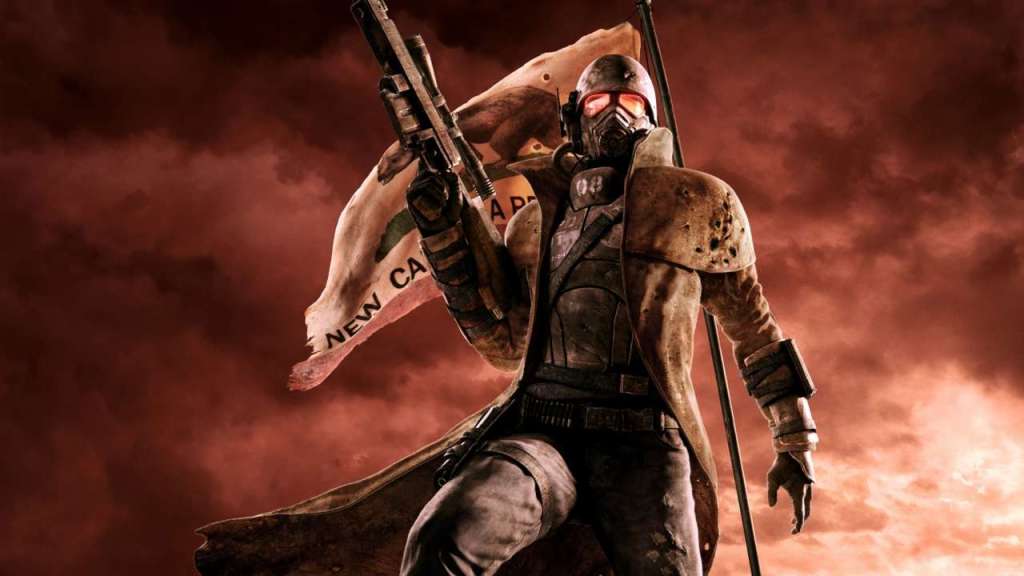
13. Fallout: New Vegas
You are often the most important character in an RPG, and RPGs go to great lengths to remind you of that fact. Chosen ones, prophecies…numerous genre tropes exist to remind you why you are special. Well, New Vegas openly defies that trope. It goes out of its way to tell you that you’re not that special and not that important. What you do is up to you in a world that is clearly indifferent to chaos.
Yet, New Vegas uses that idea to make you feel so much more important than you do in other RPGs. Because you have no fate but the one you make, every choice matters (at least to you) on some level. From the moment you create your character after being shot in the head and left for dead, you begin navigating a complex web of consequences where every action can have incredible and unexpected results. It’s a credit to New Vegas’ writing that all of those choices are not only expertly executed but always feel like the only story that matters. – MB
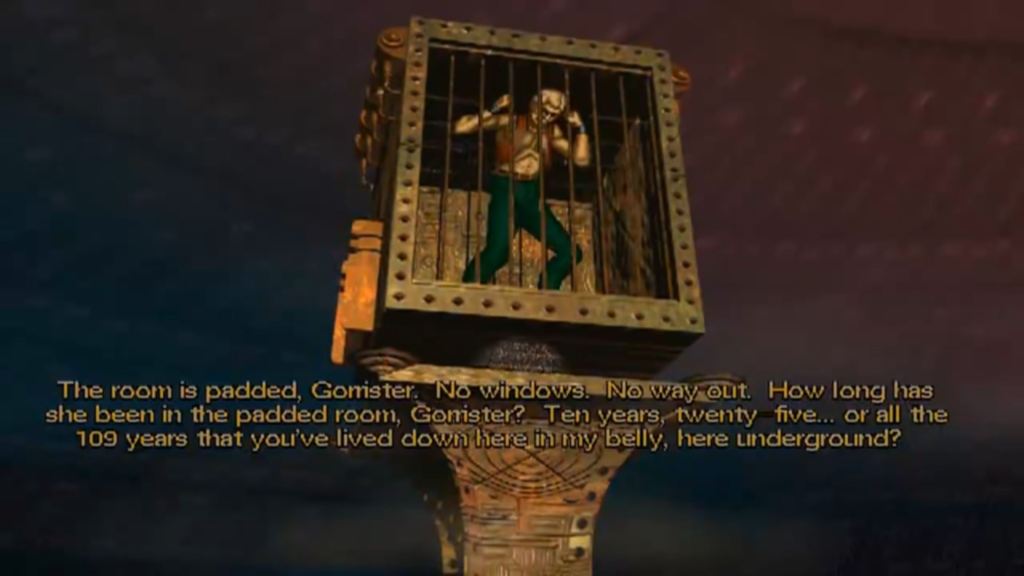
12. I Have No Mouth, and I Must Scream
“I think, therefore I AM.” The Harlan Ellison short story that inspired the video game adaptation of I Have No Mouth, and I Must Scream is a deeply fascinating sci-fi dystopian epic that examines trauma and the resiliency of the human spirit in the most horrifying, demented ways.
But the developers at Cyberdreams and The Dreamers Guild took the material to new heights by immersing players in the trauma of the characters and guiding them through their respective trials, all administered by sadistic supercomputer AM. This nearly 30-year-old adventure game remains a shining example of how video games can elevate and enhance stories in ways other mediums simply can’t. – BB
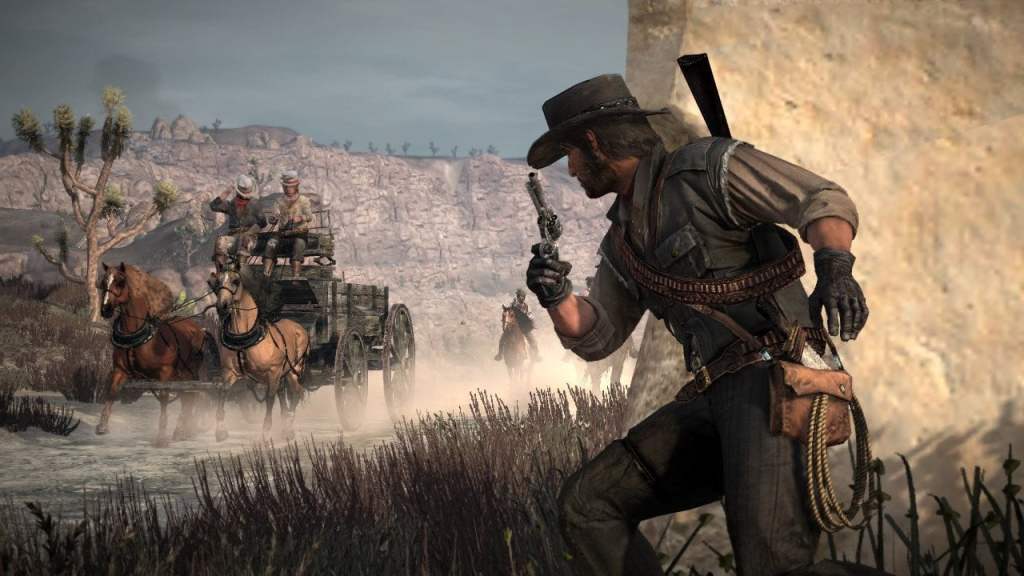
11. Red Dead Redemption
Can a man ever truly change his ways and escape his violent past? It’s a heady topic for a fundamentally entertaining open-world game, but one that Red Dead Redemption tackles as well as the best Old West book or movie.
John Marston is a retired outlaw who simply wants to live in peace with his wife and son until federal agents pull him back into his old lifestyle to hunt his former gang members. While initially derided as “Grand Theft Auto with horses” simply because those games share a developer and large worlds, Red Dead Redemption is very much its own game, with an even better story than anything GTA has done. This is a historical epic about the inevitable march of progress, loss of freedom, and, ultimately, redemption (or the lack thereof). – CF

10. Shadow of the Colossus
With a handful of cutscenes, Shadow of the Colossus offers the barest outline of a story. A young man appeals to an imprisoned god to save a dead girl, and, chasing close behind, a mystic leads a band of warriors to stop the ritual. Despite its lack of overt storytelling elements, Shadow of the Colossus utilizes environmental storytelling to create something larger than life.
The Forbidden Lands are full of ruins that suggest a lost society. Dormin’s exhortations to kill the colossi beg questions with no firm answers. The dire warnings our narrator recites ask us to decide if he’s actually the hero here. The only keystone is its equally wordless connections to the preceding game ICO. Ultimately, each player lands on their own interpretation of these events. It’s magical in its silence. – MD
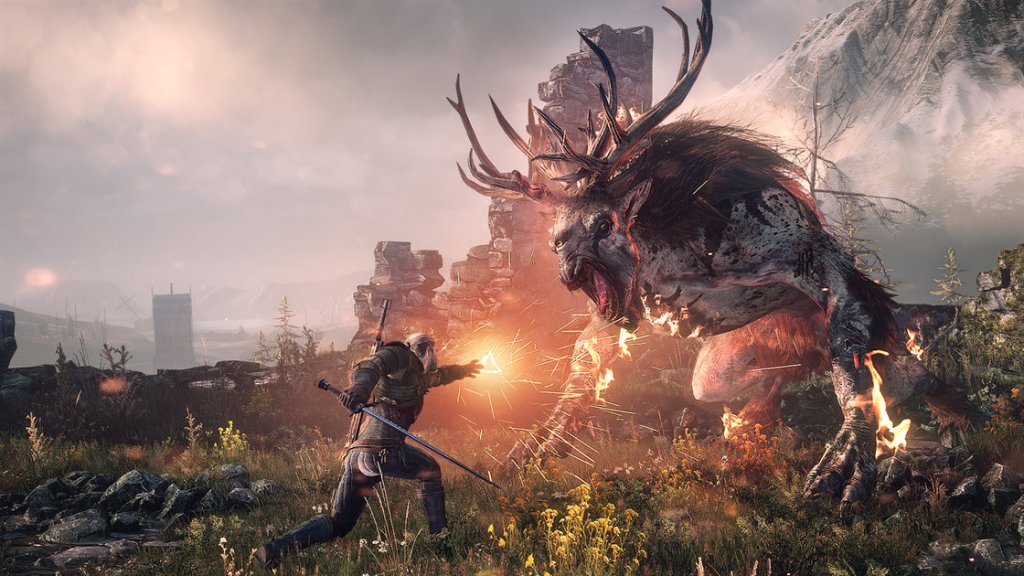
9. The Witcher 3: Wild Hunt
Open-world games are known for their depth of content. The larger a game’s world, the more side quests and stories developers can fit into it. Well, The Witcher 3: The Wild Hunt offers some of the densest narrative content per square inch you’ll ever find in such a game.
The narrative of The Witcher 3 is fairly simple: Players control Geralt as he searches for his adoptive daughter Ciri. Despite its simplicity, this main plot is well-written and full of equally compelling characters. Furthermore, the game is highly replayable because players can make tons of choices throughout their journey, which twists the plot in a myriad of unexpected ways.
However, the secret sauce of The Witcher 3 is its side content. The game is drowning in optional quests and stories that expand on the game world, and many of these bite-sized stories meet or even exceed the main narrative’s quality. It’s a narrative feat that sets an almost impossible standard for such titles – AG

8. God of War (2018)
Historically, the God of War games have always been known more for their action segments than their stories. That’s not to say their narratives were bad, just that they never matched the gameplay. The soft reboot changed that.
God of War (2018) follows Kratos fulfilling a dying request to spread his wife’s ashes from the highest peak in existence. The journey is complicated by the presence of Atreus and the even greater presence of the obvious emotional gap between father and son. The story quickly evolves into a gripping road trip-style story where Kratos has to not only come to connect with Atreus but also come to terms with his past and a future where he is no longer around to guide Atreus.
While God of War (2018) tells a solid story on its own, God of War veterans will get more out of it thanks to their firsthand knowledge of Kratos’ history. It’s an absolutely incredible recontextualization of the franchise’s mythos that feels like both a piece of a whole and the clear standout – AG
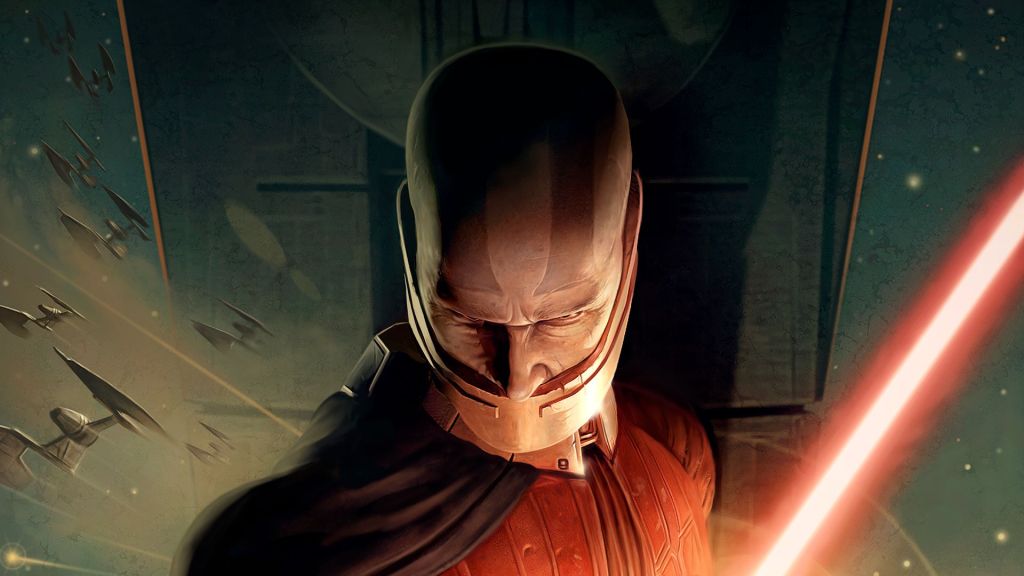
7. Star Wars: Knights of the Old Republic
There are so many things that make Star Wars: Knights of the Old Republic a great Star Wars story. The characters are rough around the edges and relatable, such as the internally conflicted Bastila Shan and the morally gray Jolee Bindo, and traversing the galaxy on the Ebon Hawk makes the game feel decidedly on-brand. It is as incredible of a Star Wars tale as we can ask for in all the ways we typically look at and judge Star Wars tales.
All of the classic Star Wars elements are here, but let’s be honest. What makes this particular space opera stand out from the rest is the earth-shattering plot twist, which alters the DNA of the story completely. It’s not just one of the best surprises in Star Wars franchise history; it’s one of the best twists in gaming history, and it’s the main reason BioWare’s modern classic is held in high regard by fans to this day. – BB

6. Portal 2
Portal 2 is a masterclass on how complex storytelling can be applied to even the simplest concepts. The rogue AI GLaDOS was already an iconic character by the end of the first Portal, but turning her into an unlikely partner (in the form of a potato), somehow made her even better in the sequel, while Wheatley’s incompetence makes him an even more intimidating villain.
And who could forget J.K. Simmons’ pitch-perfect vocal performance as Aperture CEO Cave Johnson? While giving plenty of backstory on what led to the events of Portal, his monologue about lemons is one of the greatest ever written for any game. This is the rare game that will have you laughing out loud until the very end, yet it’s the hints of grander mythos and shocking emotional beats that will stay with you long after the laughs have faded. – CF
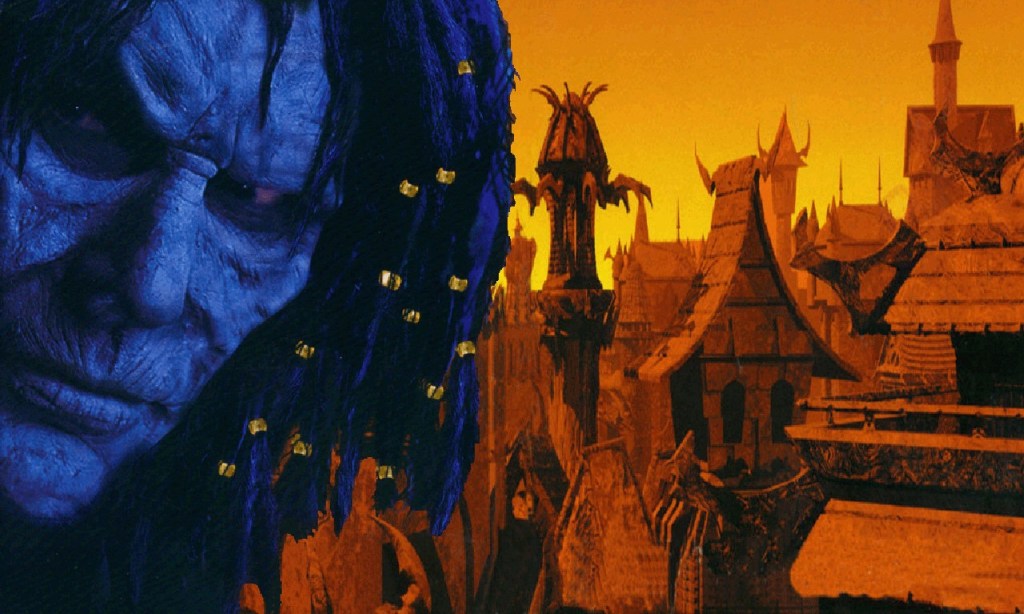
5. Planescape: Torment
Many games have morality systems, but they usually only affect the surface of the experience (such as character skills or potential allies). However, Planescape: Torment doesn’t just use a morality system. It orbits around one to ask its central narrative question, “What can change the nature of a man?”
Planescape: Torment stars the Nameless One: an amnesiac who wakes up in a mortuary. He has no idea of who he was or why he was mistaken for a corpse, and while the trope of an amnesiac protagonist is overused, for the Nameless One, it is woven into his identity. He is a blank slate that players can mold, surrounded by charming and witty characters who change with him.
At its core, Planescape: Torment is one big mystery. Who was the Nameless One previously? Can you trust the people around him? Can you even trust the Nameless One? Every new plot twist answers some questions but asks new ones, and some even make you reconsider whether you can even believe previous revelations. The sheer scope and worldbuilding of Planescape: Torment only accentuate the narrative, resulting in a title that will leave players wanting more while second-guessing every decision. – AG
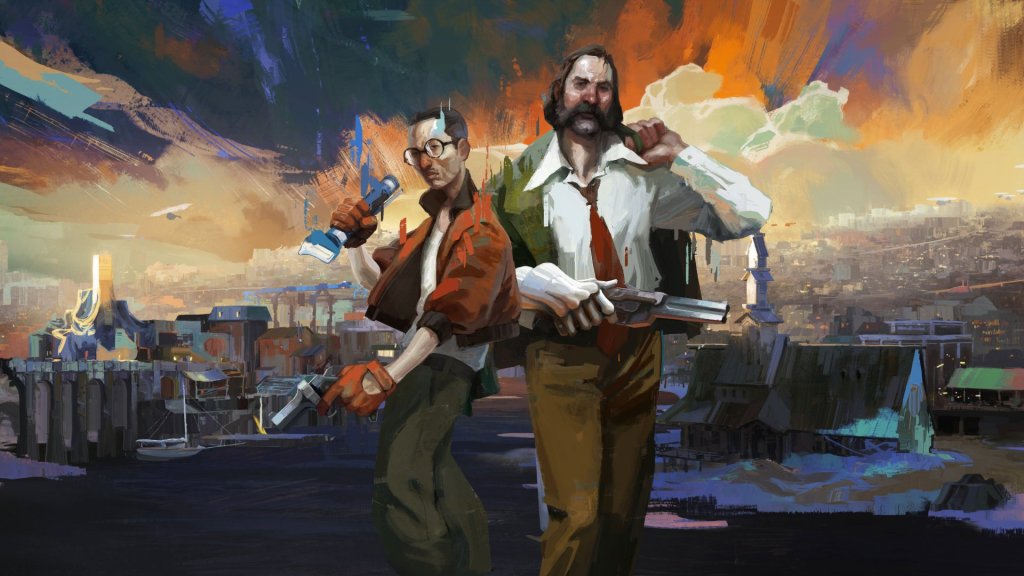
4. Disco Elysium
Come to Revachol for the mental illness and crippling alcoholism! Stay for its Rorschach-style method of introspection, where every decision you make as the player may end up saying more about you than the wasted detective you’re puppeting!
Cheekily aware of the real world we live in, Disco Elysium imbues its fictional society with fantastical quirks to distract us from its sharp-edged commentary. That is until we realize we’re totally hooked on the plot.
Our protagonist is a cop: an ironic choice to lead a story about one man’s praxis in a world shattered by ideologues of all kinds. He has a job to do, despite the interpretations we put on his personality, and it’s about much more than a lynching behind a union bar. We’re given plenty to think about as we speak with capitalist cronies and opportunistic comrades. Though its plot is linear, there are multiple unique ways to progress, making it into a story we’ll be happy to replay for years to come. – MD
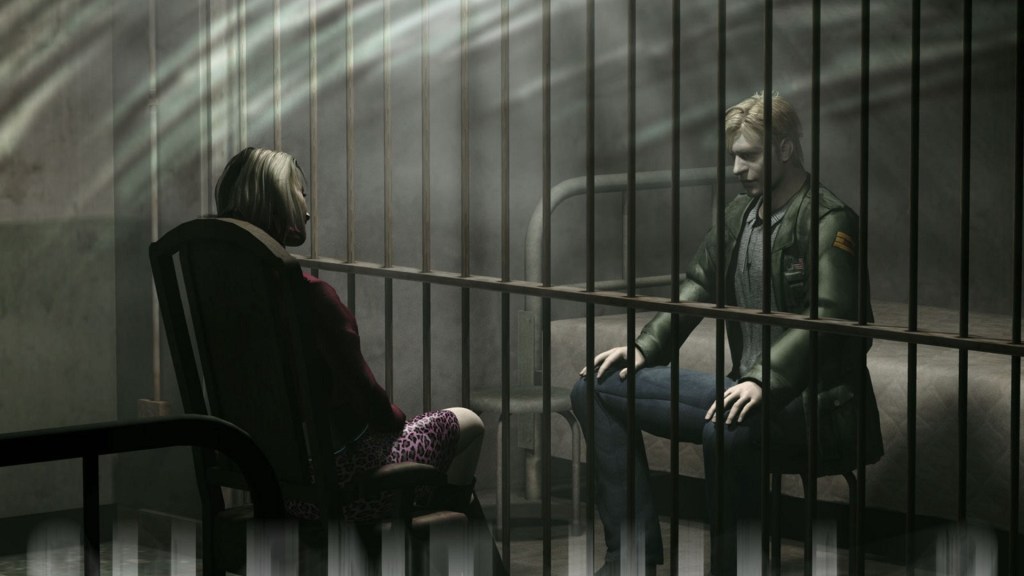
3. Silent Hill 2
Whenever the subject of why people love horror so much is discussed, the idea that people “enjoy being scared” inevitably comes up. There is obviously some truth to that, but you get the feeling that the people who say that are talking about funhouse scares. Things that go “boo!” and give us a quick thrill. It’s not that the same idea doesn’t apply to deeper, darker, more psychological forms of horror but rather that the interpretation of that idea is different. What if we don’t love being scared so much as we secretly crave some kind of punishment?
That is one of the many thematic ideas explored in Silent Hill 2. As Harry Mason, you follow a letter from your seemingly dead wife into the depths of the town of Silent Hill. There, you will experience a truly masterful blend of pre-set and dynamic narrative concepts.
Silent Hill 2 doesn’t make Henry Mason a blank slate. He has his own personality, his own story, and his own fears. Indeed we watch those fears manifest themselves throughout the town and take the form of various monsters and other horrors. However, Silent Hill 2 is very much our own story. How you choose to play the game is reflected in the story in subtle ways that most players will never realize during the course of the game. Thoughts of suicide, sexual repression, a desire to undo the past…it’s so difficult to untangle the knot that binds Harry Mason to the player that some may find more peace in accepting that the connection is too strong to properly be broken. – MB
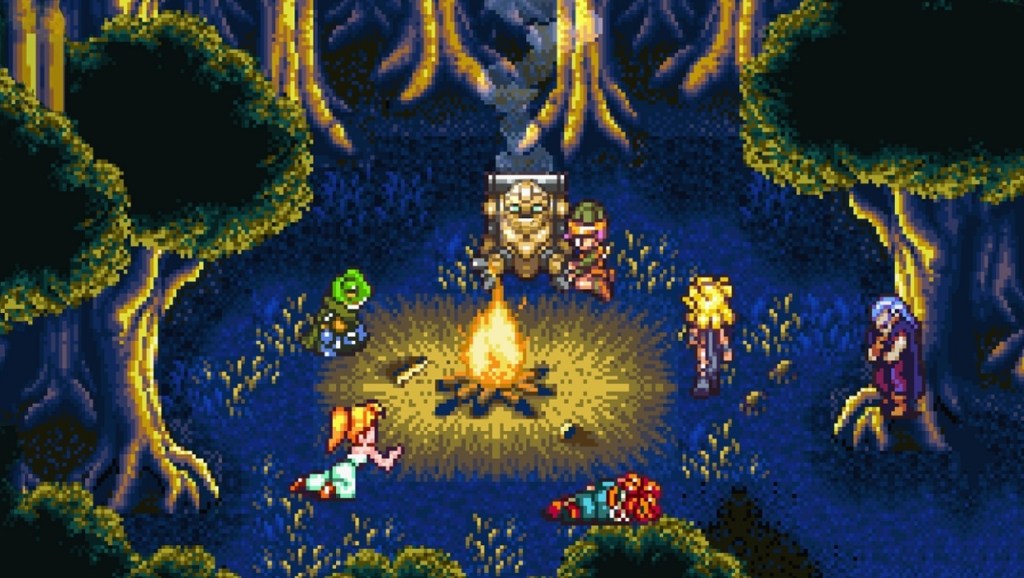
2. Chrono Trigger
At its core, Chrono Trigger is a surprisingly straightforward story about time travel and saving the world, but it’s just so incredibly well told that it has carved out a special place in gaming history.
Part of the game’s magic is in the eras you visit, which range from the prehistoric and the medieval to the far-flung future, and, eventually, the very end of the world. Through it all, we come to know and love Chrono Trigger‘s incredible cast of characters. Frog is just such a tragic hero, and then there’s the completely optional Magus redemption arc.
And then the whole thing wraps up with one of 13 different endings; an impressive accomplishment for the time that has lost little power over the years. Regardless of which ending you get, the story feels like it’s come to a satisfying conclusion. It’s rare for a game to include so much optional content, and for it all to be so well written and tied together so perfectly. And that’s really the ultimate genius of Chrono Trigger. Even with its lofty narrative goals, it remains incredibly well-paced and focused, ultimately resulting in a masterpiece of a story that appropriately stands the test of time. – CF
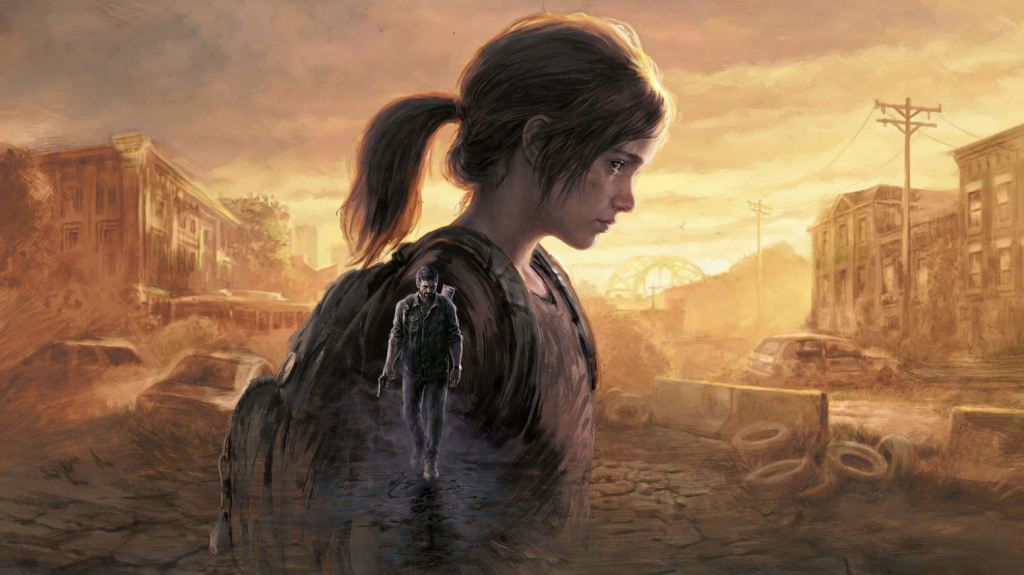
1. The Last of Us: Part 1
The greatest testament to the power of The Last of Us’ story is that the very best scenes from the mega-hit HBO TV adaptation were ripped shot for shot, word for word, directly from the game. The fact that a video game story from 2013 has been proven, without a shadow of a doubt, to be as good as, if not better than, any prestige drama you’ll find on TV or the big screen a decade after its initial release is astounding.
All of the franchise’s success is thanks to Neil Druckmann and the team at Naughty Dog, who crafted a timeless lone-wolf-and-cub tale that explores the most grotesque yet relatable aspects of human nature in the most poetic way. Joel and Ellie are the most layered, psychologically complex, fully-realized video game protagonists ever created. As their relationship develops over the course of their odyssey toward “the light,” we get to know them and their deepest fears so intimately that, when the game’s tragic finale comes, we’re shocked, but we also understand precisely where they’re both coming from.
It’ll be hard for any game to top The Last of Us’ story, but what’s exciting is that it has raised the bar for the medium and will influence and inspire the evolution of storytelling in games for years to come. – BB
